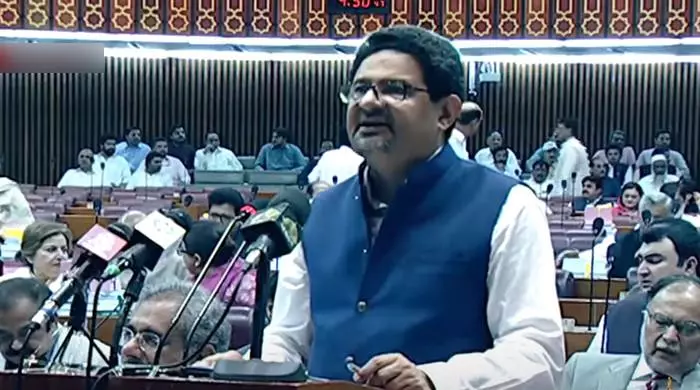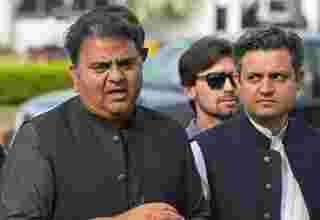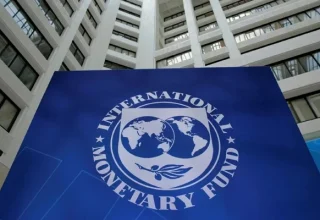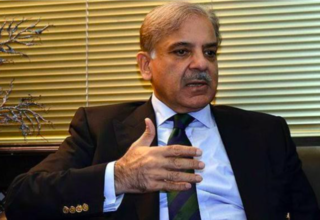ISLAMABAD, June 10(ABC): The Shehbaz Sharif-led coalition government is unveiling the “toughest” federal budget for the next fiscal year 2022-23 in the National Assembly with an outlay of Rs9.5 trillion amid strict conditions of the International Monetary Fund (IMF) for the revival of the $6 billion loan programme stalled since months over policy breaches.
Federal Minister for Finance and Revenue Miftah Ismail, while presenting the budget proposals, berated the “incompetent” PTI-led government for its poor performance, saying that the current budget focuses on “sustainable and inclusive growth.”
The finance minister said that due to the “incompetency” of the PTI-led government, Pakistan has been facing the issue of skyrocketing inflation.
The minister said the government had to move towards “sustainable growth”, adding that the growth target for next year was set at 5%.
“The problem of our economy is that growth is 3-4%, but when it moves up to 5-6%, our current account deficit goes out of control, because we prioritise the elite and increase our imports to facilitate them. We need to adopt a new outlook focused on alleviating the lower-income sections of society to increase domestic production,” the minister said.
Addressing the Speaker of the National Assembly Raja Pervez Ashraf, Miftah assured that the new coalition government will pull Pakistan out of the economic crisis: “We have done it before, we can do it, we will do it.”
Miftah further added that in the next fiscal year, the country has to improve the economic conditions of the poor by providing them with facilities.
“When the income of the poor people increases, they purchase consumer goods which are produced locally. And this, in turn, reduces the exports and initiates the development process. We can achieve inclusive growth by taking the above-mentioned steps,” he said.
The finance minister further highlighted that Pakistan has become the third-most-expensive country due to the incompetency of the PTI-led government.
Shedding light on the budget philosophy of the coalition government, the finance minister said: “We will increase the agricultural production to increase arable produce and increase per acre yield while also focussing on the development of industries which can help increase the exports of the country.”
“Prime Minister Shehbaz Sharif wants to provide maximum relief to the people of the country, particularly those who are unable to bear the burden of rising inflation,” he said, revealing that for this purpose, the government has taken several decisions to provide subsidies.
Miftah, while sharing the details of the federal budget for the next fiscal year 2022-23, revealed that the Federal Board of Revenue’s (FBR) target for the next fiscal year was 9% — Rs7,400 billion — while the provinces will be asked to collect Rs4,100 billion.
The federal government’s net revenue is projected to be Rs 4,904 billion, non-tax revenue will be Rs2,000 billion, and the expenditure is expected to be around Rs9,502 billion for the next fiscal year, Miftah said.
Pakistan will also spend Rs3,950 for debt servicing, the finance minister told the house, adding that the tax imposed on non-filers has been proposed to be hiked from 100% to 200%.
The total expenditure for interest payments during the current fiscal year has been estimated at Rs3,144 billion — including Rs2,770 domestic and Rs373 international — while for the next year, it will climb to Rs3,950.
The finance minister added that the public debt of the outgoing fiscal would stand at 72.5% of the GDP as it reached Rs44,365 billion in March 2022.
The FBR’s tax revenue for the ongoing fiscal year is projected to clock in at Rs6,000 billion, and the contribution of the provinces will stand at Rs3,512, he said, adding that the Centre’s net revenue is estimated to be Rs3,803 and non-tax revenue Rs1,315.
The total expenditure of the federal government for the current fiscal year is expected to clock in at Rs9,118 billion, the Public Sector Development Programme (PSDP) at Rs550 billion, while Pakistan will spend Rs3,144 billion on debt servicing, Miftah said.
He proposed increasing the rate of advance tax on purchase and sale for filers from 1% to 2%, while for non-filers, the tax rate for purchasing property will be at 5%.
The finance minister said if a person has an immovable property of Rs25 million or more, then 5% of its rate will be considered as an individual’s additional income. He said that on this income, the government would charge a 1% tax. In case a person holds an immovable property for more than a year, then they will be charged with 15% capital gain tax, which will become 0% after six years, he said.
Benazir Income Support Programme (BISP)
For the next fiscal year, the total allowance for the Benazir Income Support Programme (BISP) has been proposed to be increased from Rs250 billion to Rs364 billion. To that end, Miftah said that nine million families would receive money through the Benazir Kafalat Cash Transfer Programme, and Rs266 billion have been proposed to be allocated for it.
The finance minister added it had been proposed to increase the subsidy for the Utility Stores Corporation to Rs12 billion.
He added that the Benazir Taleemi Wazaif Programme will be extended to 10 million children, while more than Rs35 billion will be earmarked for the programme. More than 10,000 students will be given undergraduate scholarships and over Rs9 billion have been allocated for it, he said.
On the other hand, the Benazir Nashonuma Programme will be extended to all the provinces and the fund allocation for it will be increased to Rs21.5 billion, while the Bait-ul-Maal will allocate Rs6 billion for the medical treatment of needy people.
Rs65b allocated for HEC
Miftah said that despite several hurdles in the country, Rs65 billion has been earmarked for the Higher Education Commission (HEC). Other than that, Rs44 billion has been earmarked for the development projects of HEC, which is 67% higher in line with the government’s commitment towards the youngsters of the country.
“We are trying to convince the provinces to further focus on the development of the higher education in their provinces,” he added.


































